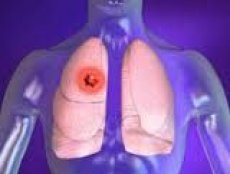Medical expert of the article
New publications
World's first lung cancer vaccine approved for use in Cuba
Last reviewed: 30.06.2025

All iLive content is medically reviewed or fact checked to ensure as much factual accuracy as possible.
We have strict sourcing guidelines and only link to reputable media sites, academic research institutions and, whenever possible, medically peer reviewed studies. Note that the numbers in parentheses ([1], [2], etc.) are clickable links to these studies.
If you feel that any of our content is inaccurate, out-of-date, or otherwise questionable, please select it and press Ctrl + Enter.

The world's first therapeutic vaccine against lung cancer has been approved for use in Cuba, Xinhua reports.
The CimaVax-EGF vaccine was developed by specialists at the Center for Molecular Immunology in Havana over a period of 25 years. This drug is an analogue of the epidermal growth factor (EGF), which is necessary for the growth and spread of cancer cells. When it is used, the immune system attacks the cells that produce EGF, resulting in tumor growth being significantly slowed down.
In clinical trials involving nearly 1,000 patients, adding CimaVax-EGF to traditional chemotherapy statistically significantly extended patients' lives. "This drug can turn cancer into a manageable chronic disease by producing antibodies against proteins that trigger uncontrolled cell division," explained lead author Gisela Gonzalez.
At the same time, previously published publications on clinical trials of the vaccine have caused skepticism among international experts regarding the advisability of its use.
However, in Cuba, CimaVax-EGF has been approved for use in patients with stage three and four cancers who have failed conventional treatments such as radiation and chemotherapy. Hospital patients receive it free of charge.
In Cuba, where smoking is extremely common, lung cancer kills about 20,000 people each year. In 12 of the country's 15 provinces, the disease is the leading cause of death.


 [
[